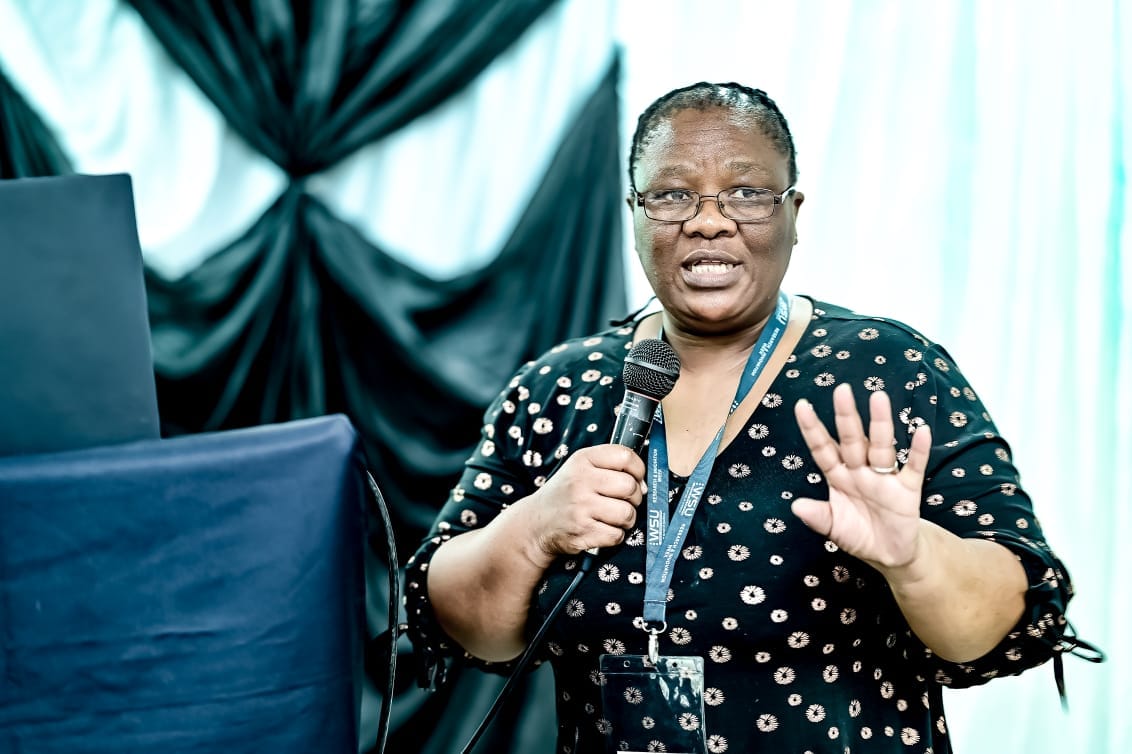WSU DRI ENCOURAGES PRIORITIZATION OF RURAL-BASED RESEARCH

Acting Executive Director of the WSU Directorate of Research and Innovation (DRI), Professor Thobeka Ncwanywa, has encouraged WSU researchers to actively pursue research that is based in and addresses challenges of the Rural Eastern Cape.
Ncanywa spoke at WSU’s Komani Campus Research and Innovation Day (R&I), which was the first of four R&I Days to be held across WSU’s campuses.
The day saw novice as well as seasoned researchers presenting their research papers under the day’s theme: “Exploring how innovation is shaping the future of society and the implications for various sectors.”
Addressing participants on the day, Ncanywa implored WSU researchers to intensify their research efforts in rural areas.
“Walter Sisulu University has an opportunity to make a significant impact on the lives of those living in rural areas by prioritizing research in these surroundings. By addressing rural issues, promoting inclusivity, nurturing rural talent, and contributing to local economies, WSU can not only fulfill its academic mission, but also become a beacon of hope and progress for the communities it serves. It is through this commitment to rural research that the university can further its reputation as a catalyst for positive change and a true agent of social transformation," said Ncanywa.
Keynote speaker at the Komani Campus Research Day, Professor Munacinga Simatele from the university of Fort Hare expanded on the day’s theme, unpacking what innovative and impactful research meant for an institution like WSU.
Simatele asserted that it was not enough for researchers to have published papers, but what was most imperative was getting tangible results which would offer innovative solutions to local as well as national challenges.
“Innovation is far more than technology. It is the new products and services that your research will develop, the improvements in processes, that new business model that will help reduce poverty, or social innovations that will improve health outcomes for people experiencing poverty. It is also those cultural and creative expressions that will make young people have more confidence in themselves and be encouraged to be useful in society and contribute to the upliftment of their communities,” said Simatele.
In conclusion, Simatele echoed Ncanywa’s sentiments, stating that the researchers’ work was a key lever in engendering change in their surrounding communities.
By Yanga Ziwele
